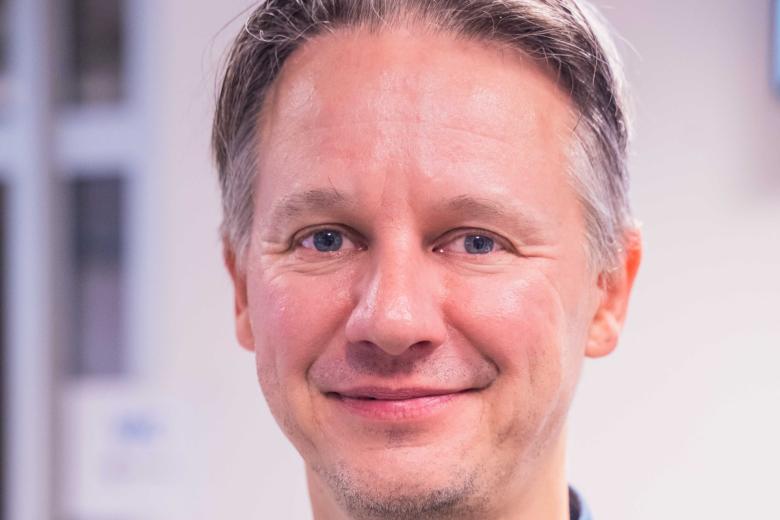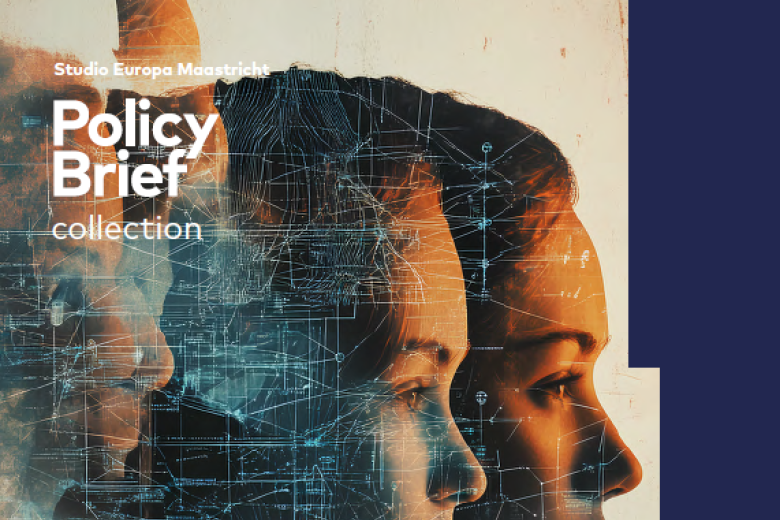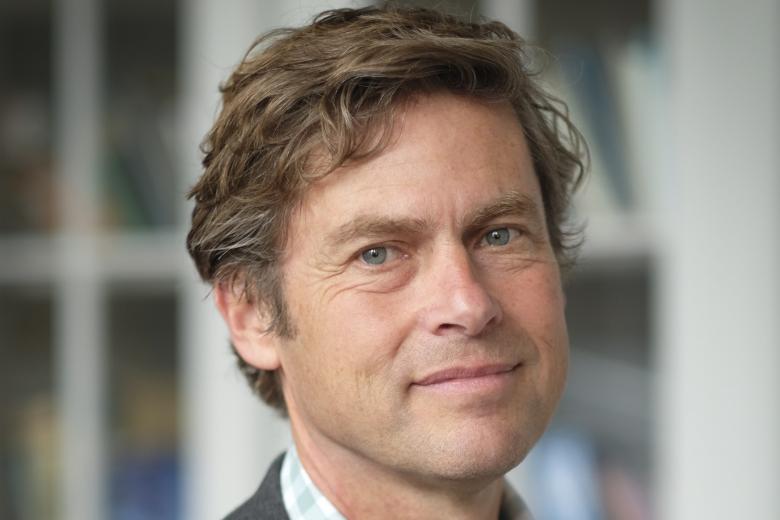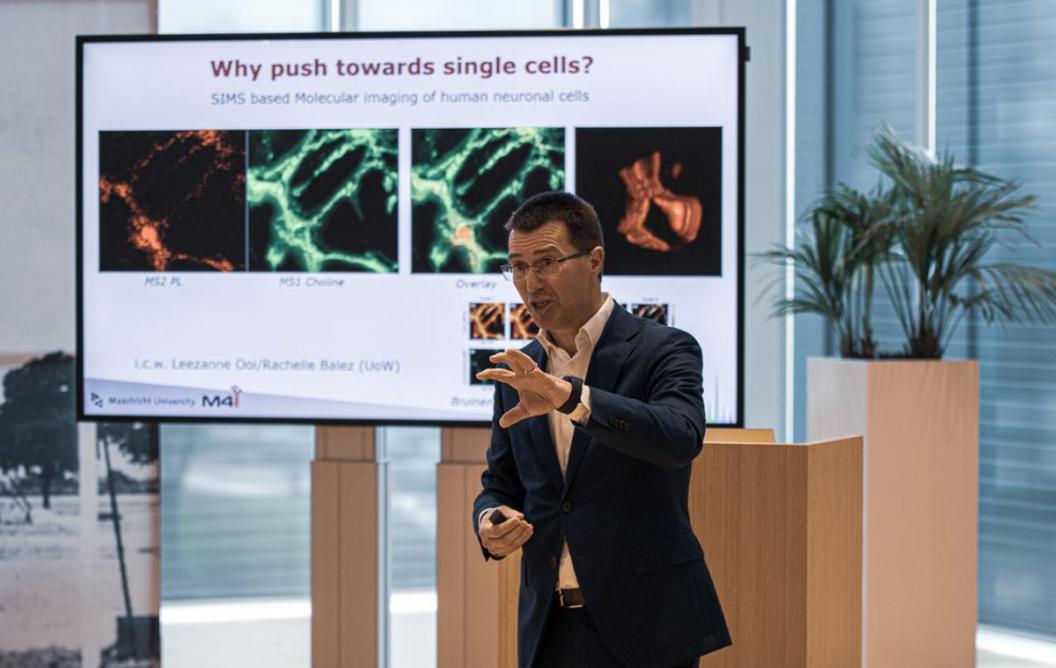‘Science does a better job explaining achievements’
Ron Heeren moved a complete research group from Amsterdam to Maastricht University in 2014 to set up a new institute: M4I, fully focused on the imaging of cells using mass spectrometry. After seven years of pioneering and building, the professor has developed an impressive track record that has been rewarded with membership in the Royal Netherlands Academy of Arts and Sciences (KNAW). This is a great honor for scientists, but for this native of Tilburg, it also serves as an incentive to push the boundaries even further.
It goes without saying that Ron Heeren is proud of being selected as a member of the KNAW. He will be officially installed as a member in September, joining a select group of some 600 Dutch scientists whose task it is to encourage science in all its facets. One of these tasks is acting as an advisory body to the government and other authorities. “The great thing,” says Ron Heeren, “is that I have not been appointed by a committee or an authority, but by other scientists within the KNAW. These are colleagues from various disciplines who review my work and efforts for the community and apparently are happy to see me as a participant in the debate. It’s one of the highest forms of recognition.”
Community and connections
Is that a bit of doubt we hear? After all, the KNAW also has a somewhat aloof image, an elite club that doesn’t often go public. It is an organization that is somewhat removed from society, and that is the part that doesn’t really suit Ron Heeren. “This last part is true,” the scientist tells me from his pied-à-terre in Maastricht where he spends most of the week with his wife. “I came to Maastricht in 2014 for the very reason that I want to expand the connections between science and the community. In Amsterdam, the focus was on fundamental research; here, we concentrate more on translating the research to concrete applications. We do this at our institute by combining fundamental and applied research. At M4I, researchers, students, doctors, engineers, entrepreneurs and government all work together on innovations that benefit society. Yes, I am a great proponent of transparency and the translation of knowledge to concrete applications. Society is paying for our work, so we believe we are accountable to them, and don’t want to lock ourselves away in the infamous ivory tower.”
Also read
-
Inaugural lecture Jan Willem van Prooijen
What drives people to embrace radical conspiracy theories, sometimes with far-reaching consequences for society? During his inaugural lecture on Friday 27 June, Prof. Dr. Jan Willem van Prooijen (radicalisation, extremism, and conspiracy thinking) will address this urgent question.

-
Studio Europa Launches Policy Brief Series on the Digital Services Act and Democracy in the Digital Age
On 15 May 2025, Studio Europa Maastricht launched its new Policy Brief Collection on Digitalisation, a multidisciplinary effort exploring how the EU’s Digital Services Act (DSA) shapes our digital future.

-
Harro van Lente appointed chairman of Netherlands Health Council committee
The Netherlands Health Council (Gezondheidsraad) has installed a committee to prepare an advisory report on preventive signalling of dementia.

